It’s in the water!
Fall is my favorite time of year, I think there is no better place to live in the world than the Pacific Northwest. The days are still sunny and warm, but there is a refreshing briskness to the air. When I drove past the Cedar River this weekend, the A-frame signs, “Cedar River Salmon Journey,”was on the side of the road reminding me the salmon are again running. If you haven’t gone to the river for the interpretative talk on the salmons’ journey up the Cedar River, I highly recommend it. There is also no better time to walk the Cedar River trail.
As beautiful as the rivers, streams, lakes, and wetlands that surround us in Maple Valley can lead to disease in our pets. The salmon returning up river cause severe illness. Salmon poisoning in dogs is caused by a dog eating raw salmon that is infected with a fluke, Nanophyetes. The fluke carries a type of bacteria called Neorickettsia, which is what actually causes disease. This time of year, if you take your dog for a walk by the river, a leash is mandatory to keep your dog from eating the salmon carcasses. We have already seen one case this year and the salmon will be around for a little while longer, and preventing exposure is much better than treating the disease.
Another disease we see year round is Giardia. Giardia is a protozoan parasite that causes diarrhea in people and animals. Giardia is spread through the fecal/oral route. The organism is passed through the feces and causes infection after being swallowed. It can be one of the causes of travelers’ diarrhea and also has the nickname of “Beaver Fever” among outdoor enthusiasts. For my patients, the most common source of infection is secondary to exposure to water contaminated with the protozoa, but exposure can also be via coming in contact with infected surfaces, eating uncooked contaminated food and traveling to countries where giardia is common.
Giardia can be difficult to diagnose and routine in-clinic fecal testing methods can miss the diagnosis, newer methods using centrifugation are more successful at picking up the protozoa. A more specialized test checking for antigen against Giardia can also be necessary to diagnose the disease. Of all the fecal tests we send in 6% are positive for giardia organisms and 11% of the antigen tests are positive. We recommend annual routine fecal testing on all pets, so even some normal fecal tests come back positive for giardia. We only run the antigen test on abnormal feces, so 1 out of 10 of our patients with diarrhea have positive giardia tests.
Symptoms of giardia are fairly non-specific gastrointestinal disease including diarrhea, gas, greasy feces, stomach cramping, nausea, and weight loss. There are a few different medications that can be used to treat infection and sometimes they are used in combination, along with symptomatic treatment to decrease intestinal irritation. Not all pets infected with giardia show disease, it is more common to see disease in young or debilitated animals and animals kept in densely populated situations (kennels and animal shelters)
Decontamination of the environment and the pet to prevent re-infection is important. Giardia doesn’t survive long in a dry environment but can survive months in a cool water source. A dilute bleach solution can be used on hard surfaces. After treatment, bathing your pet to remove any infective spores that may be on your pet’s coat is important. Most importantly, removing or restricting exposure to water sources is the best prevention.
Risk of transmission to humans is low because the type of giardia that infects humans is not typically the type of giardia that infects humans. However, an immunocompromised person may be at a higher risk. It is always good to practice good hygiene, washing your hands thoroughly after touching your pet.
I have put the links from the CDC regarding giardia infection in people and pets on my website, www.wildernessvet.com. If you have any questions, please feel free to contact me at mcaviness@wildernessvet.com. Also, check out our Facebook account.
